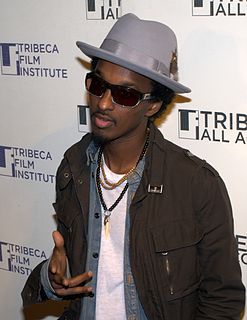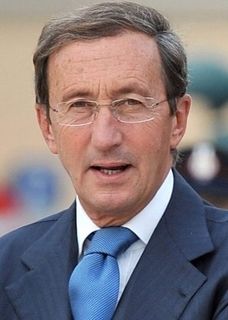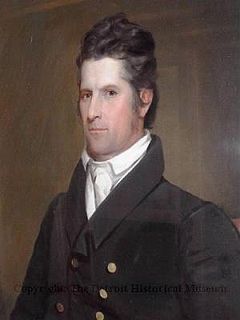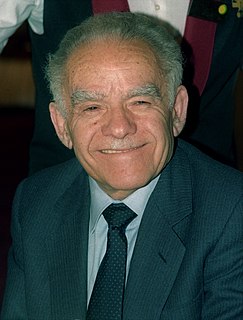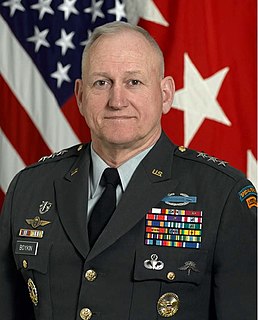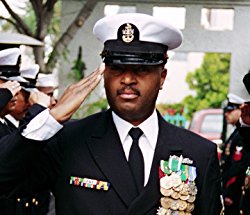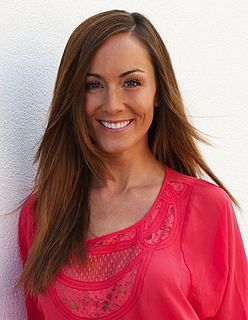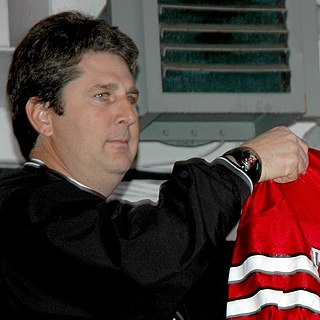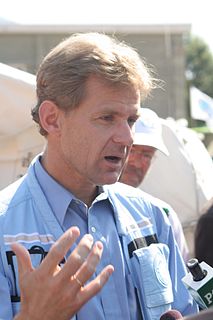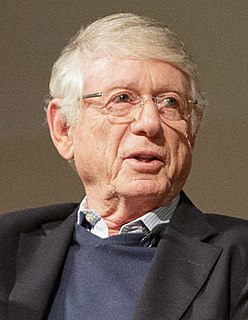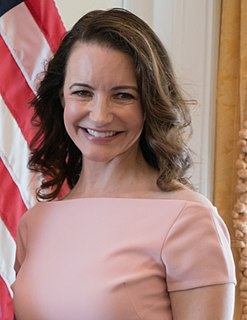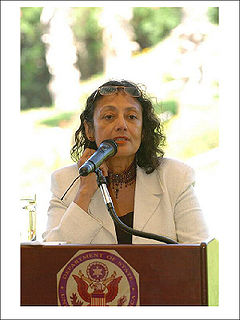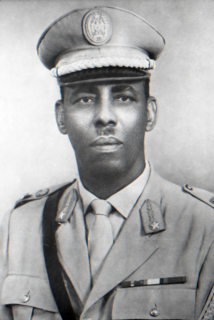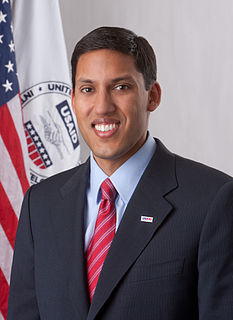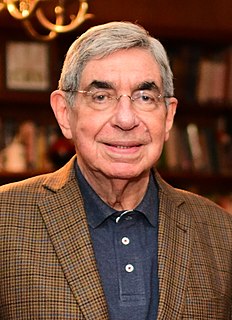Top 124 Somalia Quotes & Sayings - Page 2
Explore popular Somalia quotes.
Last updated on December 4, 2024.
Outside events can change a presidential campaign, a president, and the history of the nation: the Iranian hostage crisis, the bombing of the Marine barracks in Beirut, the downing of the helicopter in Mogadishu, Somalia, the suicide attack on the USS Cole, and, of course, the terrorist attacks of Sept. 11, 2001.
I think probably the scaredest I've ever been was in Somalia. I arrived there when the episode that became known as 'Black Hawk Down' was still taking place. The Americans were still pinned down under fire. And everybody else was basically going the other way, and I was the only one putting my hand up for a flight in.
I have a novel that I can write. It's about three soldiers from Somalia. Some babies have been disappearing up on 144th Street, and I speculate later on what happened to them and how they might have been got back. These guys are dead, all three, and they have a chance in the afterlife to do something they should have done when they were alive.
European leaders cannot afford to be afraid. The refugee crisis is not one from which they can opt out. No magic wand will empower leaders to transport more than a million people back across the Aegean and the Bosphorus to Mosul and Aleppo, or across the Mediterranean to Eritrea, Somalia, and Sudan.
ISIS is going to devolve from physical political emirate, into what Al Qaeda was, which is a covert organization which will go completely underground. But to communicate and to keep propagating their propaganda, after everyone is dead, all their fanboys and whatever surviving leadership that has been operating outside the war or operates in Somalia, Yemen, and Afghanistan, they will form what we call a "ghost caliphate."
I could have sworn that they were originally Americans who maybe fled. Maybe they were illegal immigrants or something who got here, come here with an entitlement mentality, didn't like it, fled the scene because Republicans drove them out of the country in the last election, so they went over to Somalia and started pirating things. Because they have the attitude of entitlement just like a lot of American citizens do.
The problem is everybody is worrying about explosive vests and people with AK-47s. We live in a day and age when someone sitting in Somalia or in Chile or in Perth, Australia, can be sitting there with a laptop and can theoretically take down one of our power grids or part of our infrastructure and do infinitely more damage. Nobody talks about that. It's not a question of who comes into the United States. We're way past that.
Faced with the collapse of Iraq into something like Lebanon - or worse, Somalia - the Bush administration opted for a new counterinsurgency strategy. Violence was reduced because, for the first time since the U.S. invaded Iraq in 2003, Iraqis felt that there was a force capable of dominating the situation and ensuring basic order.
I think what happened with 9/11 is that people sort of felt that it came from nowhere. Whereas I think now we understand the roots are very deep. I say it's like revolutionary Communism, something that is going to have to be knocked out over a very long period of time. This strain of extremism continues to be very strong, whether it's in Afghanistan, or Somalia or Yemen, or any of these places.
Since the Sept. 11 terrorist attacks, the number of violent extremist groups has grown across multiple continents. From Syria to Somalia to Pakistan, the United States is combating many of these groups - usually with bombs and missiles. Large numbers of innocent people are invariably caught in the middle.
The only way I see the world now is through coming out of and growing up and living in Somalia. In the time of war, everyone was basically trying to live and manage the best they could. But you also had another period which was not a hard time at all - it was just a beautiful time. I lived in both eras.
In our Revolution we believe that we have broken the chain of a consumer economy based on imports, and we are free to decide our destiny . And in order to realize the interests of the Somali people, their achievement of a better life, the full development of their potentialities and the fulfilment of their aspirations, we solemnly declare Somalia to be a Socialist State.
As I searched the atlas for somewhere to run to, Hugh made a case for his old stomping grounds. His first suggestion was Beirut, where he went to nursery school. His family left there in the midsixties and moved to the Congo. After that, it was Ethiopia, and then Somalia, all fine places in his opinion. 'Let's save Africa and the Middle East for when I decide to quit living,' I said.
Nowhere is this challenge more critical -- and the need for action more pressing -- than in the Horn of Africa. From Kenya to Ethiopia, Djibouti to Somalia, the devastating consequences of drought, desertification and land degradation are playing out before our eyes. The worst drought in 60 years has placed more than 13.3 million people -- predominately women and children -- in need of emergency assistance.
This counter-terrorism campaign will be waged through a steady, relentless effort to take out Isil wherever they exist, using our air power and our support for partner forces on the ground. This strategy of taking out terrorists who threaten us, while supporting partners on the front lines, is one that we have successfully pursued in Yemen and Somalia for years.
The problem with basing weapons sales on strategic interest is that these interests tend to shift over time, while weapons are durable goods that do not evaporate as quickly as some alliances do. Once supplied, they can't be taken back. That leads to situations such as the ones we have seen in Iraq, Somalia.
We all know about the big world conflicts: Israel and Palestine, Zimbabwe, and so on. But there are smaller conflicts that aren't even on the world's radar screen; most of the world has no idea that Ethiopia invaded Somalia a year ago. It makes sense for the Elders to sit down with both sides and see whether leaders can come to an understanding.
I enjoy Chicago as one of the great American cities. When I come here and take a taxi from the airport, I meet a young man from Somalia. I meet a young man from Eritrea who engages with this nation with a sense of hope and a sense of desire. But we also we know that there are other elements of this nation that are toxic.
The most memorable interviews for me are folks whose names I don't know: young civil rights leaders in the South, showing great courage as they walked into a town in the dark of night. A doctor working for 'Doctors Without Borders' in Somalia, operating by kerosene light in a tent. Those are the kinds of people that linger in your memory.
